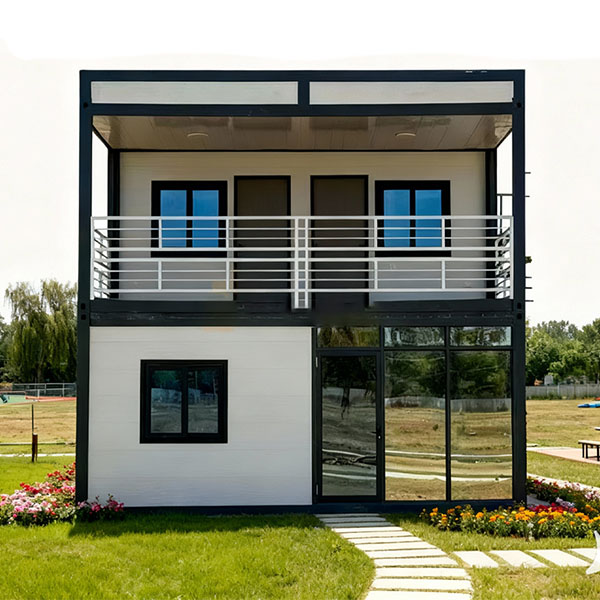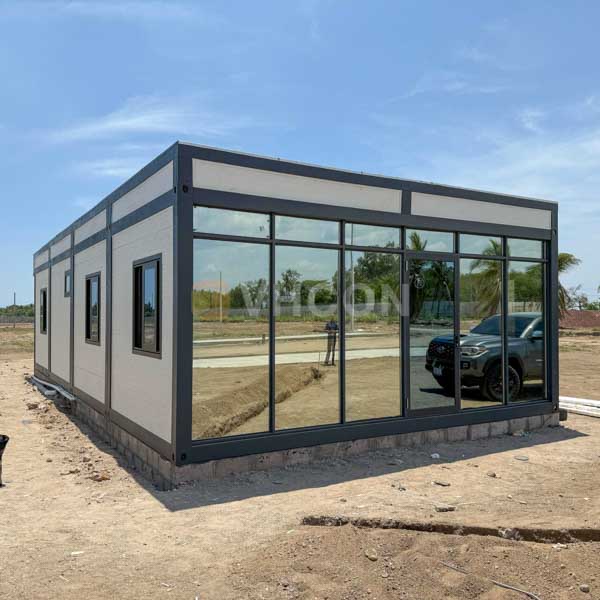Why Container Houses Are Capturing Gen Z's Heart
It might not look like your grandparents' white-picket-fence ideal, but it perfectly answers Gen Z's unique checklist: affordable, sustainable, customizable, and Instagram-ready.
Budget-Friendly Without Sacrificing Style
For a generation burdened by student debt and entering a volatile job market, budget isn't just a consideration—it's the priority. The most compelling advantage of a container house is its radically lower build cost. Even after factoring in insulation, plumbing, electrical work, and full interior finishing, the total price tag often sits well below a conventional down payment alone.
But the savings don't stop at construction. These compact homes slash monthly bills, too. Less space means drastically lower heating, cooling, and maintenance costs. For Gen Z, this financial breathing room isn't a luxury; it's liberation from being house-poor before even starting.
Your Lego-Block Home
Gen Z craves authenticity and personal expression, and cookie-cutter suburban layouts simply don't cut it. A container house offers a blank, steel canvas.
Its modular nature means you can start with a single 20-foot unit and later bolt on another for a home office, guest room, or future nursery. Want to go vertical? Stack them. The layout inside is yours to play with—walls go where you want them, nothing is set in stone.
Built at Internet Speed
Why wait years for a house when your life is moving now? Traditional construction timelines feel archaic to a generation used to next-day delivery. A container house, however, can be ready in months. Most of it is fabricated off-site and then assembled quickly, minimizing delays. Whether you're starting a family, changing cities for a job, or just want to plant roots faster, this speed is a game-changer.
Eco-Friendly by Default
For Gen Z, eco-consciousness is non-negotiable. A container house is sustainability in action—it gives a discarded industrial product a second life as a home. This foundational upcycling, combined with the smaller footprint that inherently consumes fewer resources, creates a deeply aligned living solution. Amp it up with solar panels, rainwater harvesting, and superior insulation, and your home can actively regenerate rather than just consume.
The Ultimate Flexibility
While you might not move it every year, the inherent mobility of a container house offers profound psychological freedom. In an economy of gig jobs and remote work, knowing your home isn't permanently anchored to one spot is incredibly empowering. It perfectly suits a lifestyle where the next opportunity might be in another state.
Zoning, Permits, and Things to Know
Of course, it's not all smooth sailing. Zoning laws and building codes still pose hurdles in some areas. But the tide is turning.
As tiny homes and alternative dwellings gain acceptance, municipalities are gradually adapting. Doing your homework and partnering with an experienced builder is key to navigating this new terrain.
Choosing a container house is far more than a trendy aesthetic choice for Gen Z. It's a deliberate life strategy. It's about refusing to trade decades of financial freedom for square footage you don't need. It's about designing a space that truly reflects who you are, while treading lightly on the planet.
In an era where the starter home has vanished, these innovative steel boxes are offering a radical yet profoundly practical alternative: a place to call your own, on your own terms. And honestly, that's a change worth making.
Post time: Nov-10-2025











